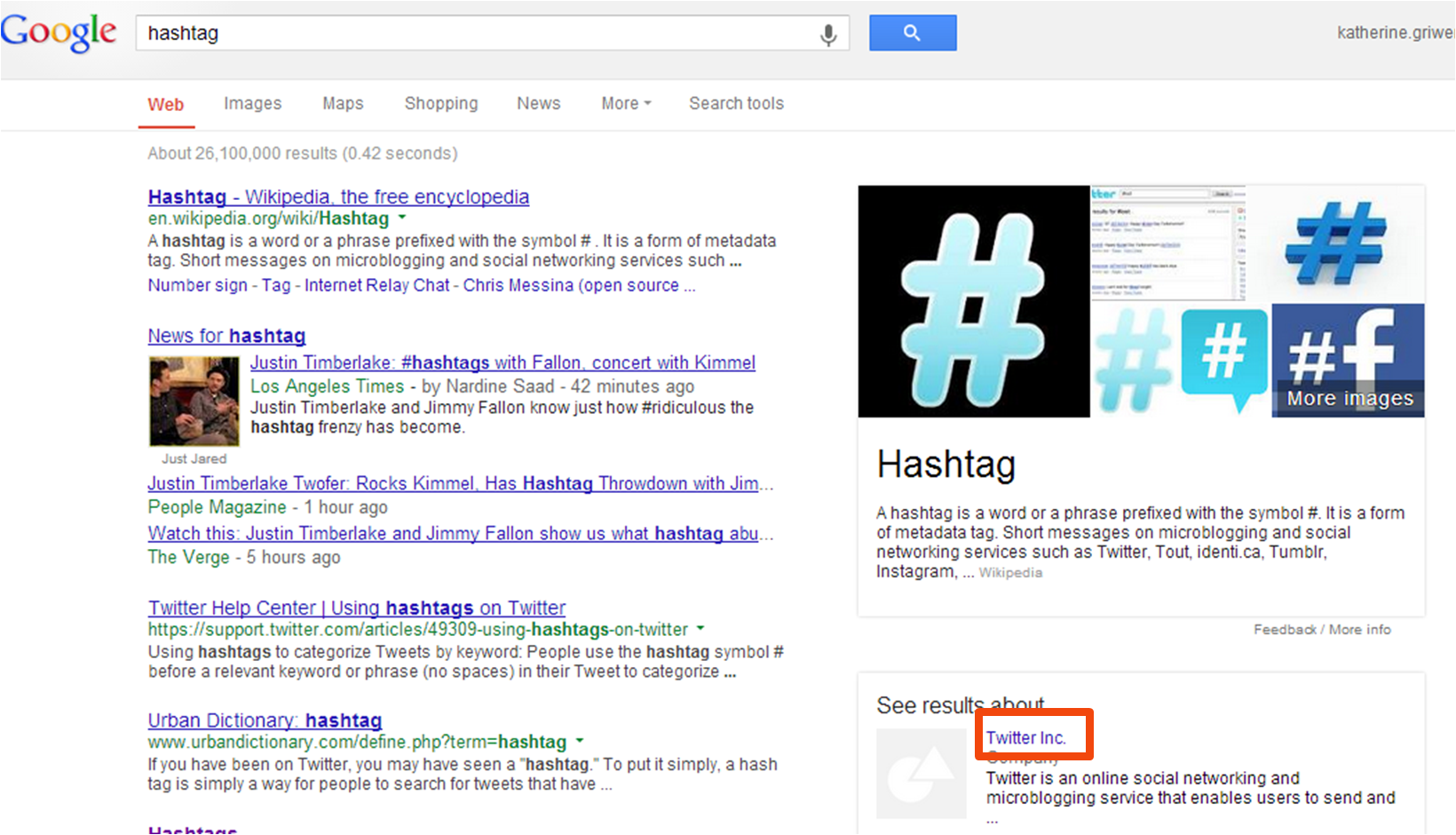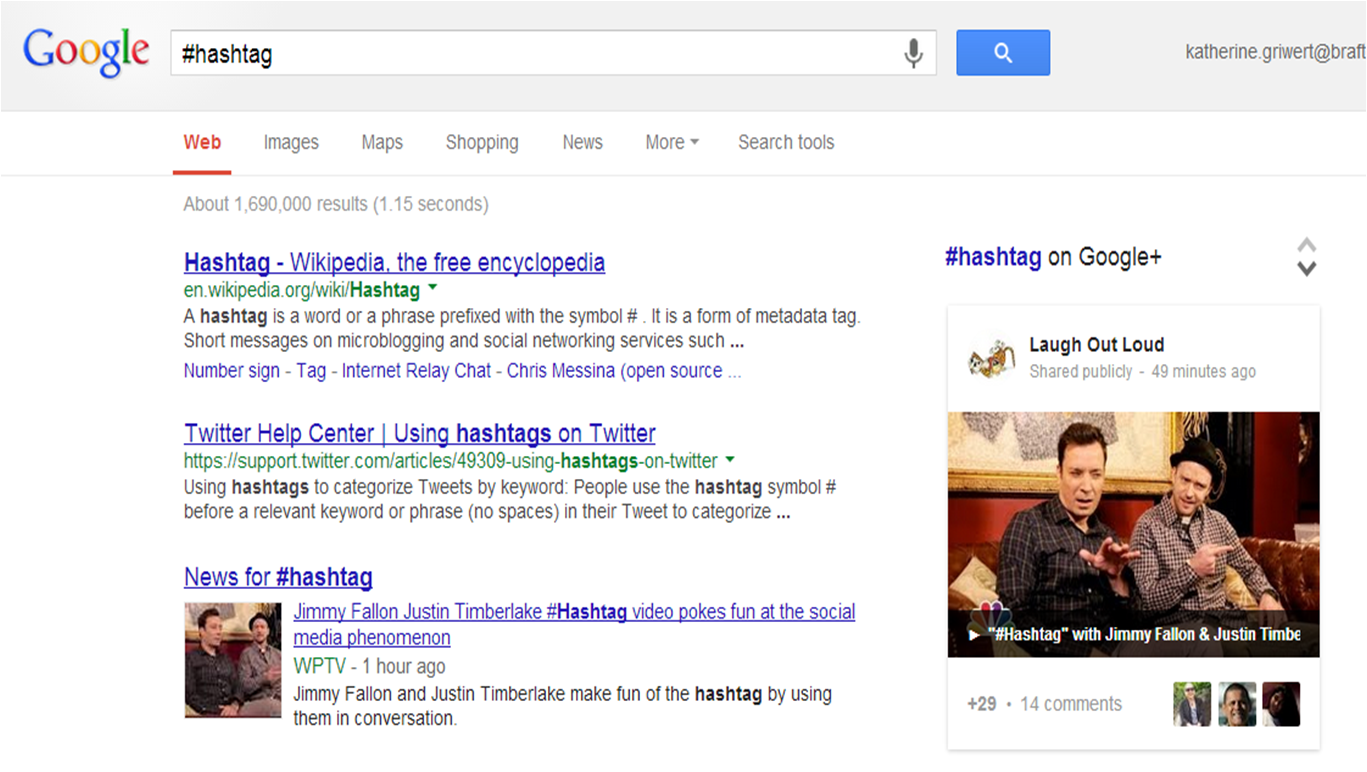Google might spoken out against the theory that content shared on Google+ gets better SEO rankings, but it’s launched a new #hashtag search that rewards G+ posts with SERP real estate.
The company announced “a richer #hashtag experience in Google search” via a Google+ post this morning.
As Google explains, when users search for a phrase preceded by the pound sign, related Google+ posts will surface in the right column of the page.
What does #hashtag search mean for PPC ads?
Although there’s no official statement from Google on the impact on sidebar ads, some initial tests make it seem that Google+ posts will appear under ads for potentially commercially focused terms, but take the place of Google+ Page “side results” for informational queries.
For example, a search for “#shoes” (versus “shoes”) still delivers the ads above the Google+ posts using the phrase. On the other hand, a search for “#BreakingBad” puts related Google+ posts top right, while a search for Breaking Bad returns the show’s Google+ Page in the top right.
Check out these comparative searches screen shots for shoes (click to enlarge):

And these searches for Breaking Bad (click to enlarge):

What does the #hashtag search mean for brand Google+ Pages?
Not every brand is popular enough to have its name turned into a common #hashtag, but those brands frequently referenced in posts may find this update relinquishes some of their ownership over branded SERP real estate. Consider Nike: A search for “Nike” returns the brand’s Google+ Page upper right, but a search for #Nike yields user-generated Google+ posts in the right column.
Check out these Nike versus #Nike search screen shots (click to enlarge):

Businesses may want to use their own brand hashtag more frequently, or at lease become more conscious of how they’re being referenced on Google’s social network. The results could make an impression on hashtag searchers.
What are the potential benefits for Google+ content?
Will posting Google+ content with keywords be the secret to extra SERP real estate? Well… Again, (potentially) commercially oriented terms seem less impacted by the #hashtag search update. In addition to “#shoes,” Brafton tested “#loans,” “#ERP,” and (of course) “#ContentMarketing.” All returned PPC ads above Google+ posts. Yet, certain “satellite” terms that may be relevant to some brands yield Google+ posts in the upper right of results (for instance, “#Twitter”).
Bottom line: It will only help marketers to share (relevant, useful) posts on Google+ and use (relevant) #hashtags to increase visibility among Google users. This network should be part of social marketing outreach for companies interested in engaged Google users… via search or social media.
This seems to be yet another attempt on Google’s part to get people to connect on Google+. The network has traditionally struggled to develop engaged users (even as +1 activity reportedly rises). Now it remains to be seen whether people will actually use the hashtag search feature. Brafton has reported that people grow tired of hashtags – sometimes viewing them as overly promotional.
More, even as networks like Facebook and Google+ add hashtags, the pound sign is still most closely associated with Twitter. Case in point: A Google search for hashtag references Twitter in the upper right…

And a #hashtag search yields a lot of Google+ posts around Jimmy Fallon and Justin Timberlake’s video mocking the pound sign.




